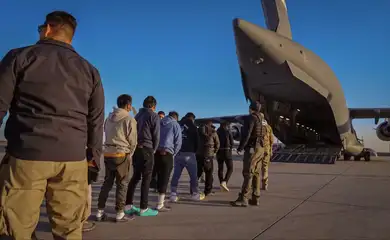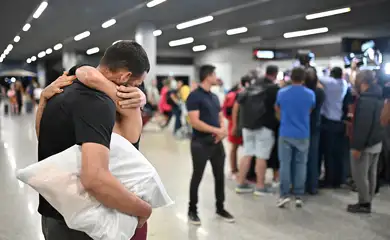Deportations of Brazilians from US increased after 2018 agreement

The number of Brazilian immigrants removed from the US has risen again following an agreement signed in 2018 between the two countries’ presidents at the time—Michel Temer and Donald Trump (in his first term then). The deal allows repatriation flights with undocumented immigrants who were no longer able to appeal to the US administration.

As per the latest figures from the US Department of Homeland Security, 11,300 Brazilians were removed from US territory from 2018 to 2022—65 percent more than the 6,800 recorded in the previous five years (2013–2017).
The repatriation of Brazilians took place at the same time as a drop in the removal of foreign immigrants in general (i.e. of all nationalities) was observed. From 2013 to 2017, the US removed 1.8 million people from the country, a figure that fell to 1.1 million from 2018 to 2022, down 38 percent.
These figures only include immigrants who have been deported from the US through a removal order, which is why the process is called “removal.” Another type of deportation, called “return,” whose data are not provided in this report, includes foreigners who are prevented from entering the country at border points or who decide to leave the US voluntarily.
Flights
The Federal Police reported that, from 2020 to 2024, Brazil received 94 repatriation flights, bringing in 7,637 Brazilians. “These figures refer only to chartered ICE [US. Immigration and Customs Enforcement] flights, used to deport detainees in detention centers [on the Mexican border],” the Federal Police said in a statement.
When questioned by Agência Brasil, the Federal Police did not answer whether the passengers were transported in handcuffs or not.
Shortly after assuming his second term as US president, Donald Trump ordered his first repatriation flights, including one to Brazil, on January 24.
The way in which the flight, which was carrying 88 Brazilians, was conducted received criticism from the Brazilian government, as the passengers were transported with handcuffs on their hands and feet. The aircraft also had air conditioning problems.
On Monday (27), Justice Minister Ricardo Lewandowski said that the deportations should respect people’s fundamental rights. “We don’t want to provoke the US government because deportation is included in a treaty that has been in force for several years between Brazil and the US. But, obviously, this deportation has to be carried out with respect for people’s fundamental rights, particularly those who are not criminals.”




